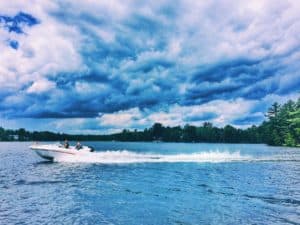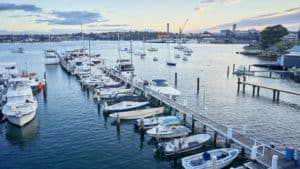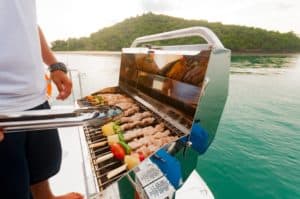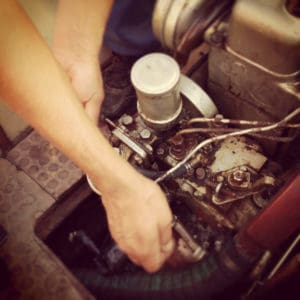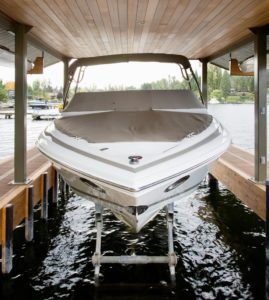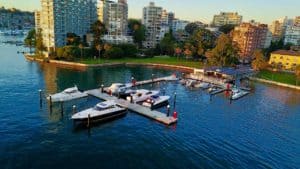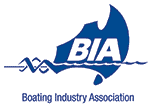Feeling the wind through your hair and the sun on your face is a feeling even more fantastic while sailing across the open water. Sailing seems exciting, of course, however there are so many intricacies to the hobby that it may seem daunting to dive into at first.
After all, you need to make sure you’re prepared to face whatever treacherous waters and harsh winds you may encounter, and need to ensure you’re up to speed on some of the basics you’ll need to sail safely.
Here are a few of our tips for you to keep in mind as you begin your boating adventures, from the knowledge you’ll need before your first boating trip all the way to where to dock your boat when you’re wandering the land.
1. Know the Lingo
One of the first things you’ll want to do when you consider boating as your newest adventure is to know the lingo. Throughout any training you complete, you’re going to hear words that you may have only previously heard on TV, and knowing these terms before you begin will go a long way to overcoming your first hurdle.
Below are a few key words you’ll be exposed to regularly throughout this adventure. This isn’t an exhaustive list, but can be used as a simple guide to get you started.
- Bow: The front part of your boat
- Aft (or stern): The rear part of your boat
- Port Side: The left side of your boat
- Starboard: The right side of your boat
- Helm: Your steering system
- Hull: The body of your boat
- Chart: You might refer to this outside of boating as a map
- Log: A record you keep regarding your boat’s operation
- Knots: The speed of your boat: One knot is one nautical mile per hour
- Nautical Mile: One nautical mile equal to 6,076 feet
- Fathom: A measurement of length equal to 6 feet
You’ll also want to familiarize yourself with terms related to you and your crew’s safety.
- Lifeline: A series of lines of string or rope across the desk that someone can grab in case of rough waters to prevent being cast overboard
- Going Overboard: When someone falls off the boat
- SOS: Globally understood term, but specifically here refers to a boat’s signal being sent out for help
- Visual Distress Signals (VDS): These visual signals, like flares, alert others to your boat being in danger
- Personal Floatation Device (PFD): This might be a lifejacket, or another buoyant object to keep those who go overboard above water
Knowing the terminology that will be thrown at you as you begin your journey into boating will best prepare you for adverse situations you may face.
2. Know the Costs
There is a financial investment to becoming a boater, but you can take many steps to keep buying a boat affordable for you and your family.
Consider loan options to finance your new vessel so you aren’t exposed to one major financial hit all at once. You will also need to consider things such as insurance to make sure your investment is kept safe.
Another cost you’ll need to consider is where your boat will be kept when you aren’t using it. Will you pay for space at a storage facility, or keep it at home? These are things you will want to consider as you figure out your own finances.
3. Know the Skills
As we’ve alluded to, one of the most important things you should consider doing when becoming a boater is to join a boating class. Boater education courses are multi-part and finish off, usually, with an exam to ensure you know everything necessary to pilot and maintain a vessel safely. There are both online and practical courses available.
Some may argue that training courses aren’t necessary, because the likelihood of you encountering the issues discussed in the courses are slim to none. We would argue, however, it’s always best to be prepared for the worst and know what to do if something goes wrong.
On-the-water courses allow you to take what it is you learned in practice onto the water and get a feel for what it is you learned. Think about pre-departure checklists: What do you need to do before you can safely take off? If you don’t know off the top of your head, a boating course is a must to ensure you can help keep you and your passengers safe as you travel.
4. Know your Marina
Marinas can be a fantastic way for you to dive (metaphorically) into your new hobby. You have quick access to mechanics and knowledgeable staff who are there to help you.
Plus, marinas can offer you safe places to launch your boat without risk to your hull. Unloading just anywhere can cause hundreds if not thousands of dollars of damage to your nautical investment. Marinas offer you peace of mind that you’re getting in the water safely.
Thinking of using a marina for your newfound hobby? At Corleone Marinas, we offer four locations throughout Australia that can get you and your boat out on the water and enjoy the sunshine — no matter the time of year.
Contact us for more information about our services at our variety of locations today.

